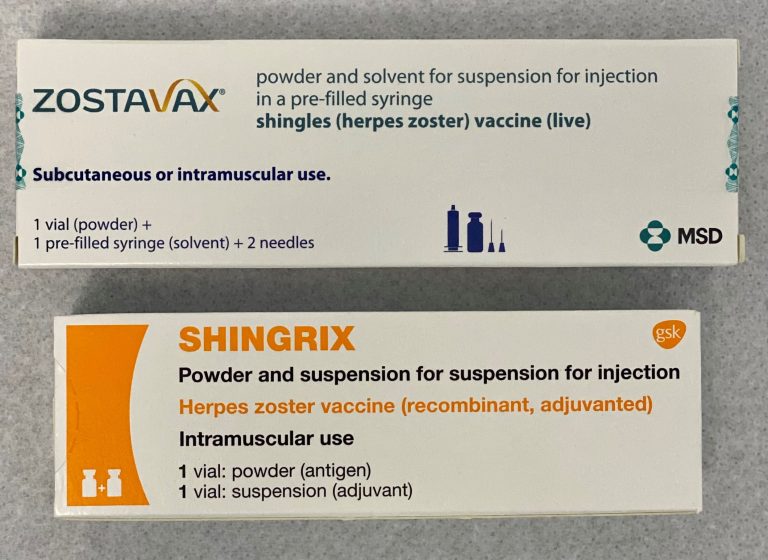GSK plc (LON/NYSE: GSK) has announced that ViiV Healthcare, the global specialist HIV company majority owned by GSK, with Pfizer and Shionogi as shareholders announced that the National Medical Products Administration (NMPA) of China has approved ViiV Healthcare’s Vocabria (cabotegravir injection) used in combination with the Janssen Pharmaceutical Companies of Johnson & Johnson’s Rekambys (rilpivirine long-acting injection) for the treatment of HIV-1 infection. Prior to the recent marketing authorisation for rilpivirine long-acting injection, cabotegravir injection and tablets were approved in China in July 2023.
· The marketing authorisation for rilpivirine long-acting injection was received on the 18 October 2023
· The complete long-acting regimen enables people living with HIV in China, who are virologically suppressed to reduce the treatment dosing days from 365 to 12 or 6 per year after initiation.
· With an estimated 1.045 million people living with HIV in China,[1] expanding treatment options is critical to reduce the scale of the epidemic in the country.
Cabotegravir injection is indicated in combination with rilpivirine long-acting injection for the treatment of human immunodeficiency virus type-1 (HIV-1) infection in adults who are virologically suppressed, on a stable antiretroviral (ARV) regimen without present or past evidence of viral resistance to, and no prior virological failure with, agents of the non-nucleoside reverse transcriptase inhibitor (NNRTI) and integrase inhibitor (INI) classes. Vocabria (cabotegravir) tablets are approved for use in combination with rilpivirine tablets (trade name Edurant) as an optional oral lead-in before initiating injections or as oral therapy for those who will miss planned injection doses.
By the end of October 2020, there were an estimated 1.045 million people living with HIV in China.1 Advancements in treatment mean many people living with HIV can now live long and healthy lives, however, some may still struggle with daily oral HIV medication. It may act as a constant reminder of HIV, be a cause of fear that their HIV status will be accidently disclosed or create challenges with adherence.
Deborah Waterhouse, CEO of ViiV Healthcare, said: “At ViiV Healthcare, we are proud to be able to offer innovative solutions that meet the evolving needs of people living with HIV. The approval of cabotegravir injection and rilpivirine long-acting injection marks a step forward in helping to change the treatment experience for some people living with HIV in China who may have challenges with daily HIV therapies. We look forward to working closely with our partners in China to make this treatment available to those who could benefit from a long-acting regimen, part of our commitment to ensuring no person living with HIV is left behind.”
This approval is based on data from three pivotal trials: the ATLAS (Antiretroviral Therapy as Long-Acting Suppression) and FLAIR (First Long-Acting Injectable Regimen) studies, and the phase IIIb ATLAS-2M study, which collectively included more than 1,200 participants from 16 countries. ATLAS and FLAIR demonstrated the efficacy and safety of cabotegravir and rilpivirine compared to standard-of-care oral regimens, while ATLAS-2M showed that once every two month dosing had comparable efficacy to once monthly.[2],[3],[4] In ATLAS, 92.5% of participants receiving long-acting therapy and 95.5% of those receiving oral therapy remained virally suppressed at week 48 (adjusted difference: -0.3%; 95% confidence interval [CI]: -6.7% to 0.7%), meeting the criterion for non-inferiority.2 In FLAIR, 93.6% of participants receiving long-acting therapy and 93.3% of participants receiving oral therapy remained virally suppressed at week 48 (adjusted difference: 0.4%; 95% CI: −3.7% to 4.5%), meeting the criterion for non-inferiority.3 In the pooled analysis of ATLAS and FLAIR most long-acting recipients (83%) experienced injection site reactions, which decreased in incidence over time. Injection site reactions led to the withdrawal of 6 (1%) participants. The serious adverse event rate was 4% in each arm.[5] In ATLAS-2M, cabotegravir plus rilpivirine long-acting every eight weeks was non-inferior to dosing every four weeks (adjusted difference: 0.8%; 95% CI: -0.6% to 2.2%) after 48 weeks of treatment. The safety profile was similar between dosing groups, with 844 (81%) of 1,045 participants having adverse events (excluding injection site reactions); no treatment-related deaths occurred.4
ViiV Healthcare’s mission is to leave no person living with HIV behind. As the only pharmaceutical company solely focused on HIV and AIDS, ViiV Healthcare is working to deliver a broad range of treatments that meet the needs of a wide variety of people living with HIV. The long-acting regimen approved on the 18 October 2023 was developed in collaboration between ViiV Healthcare and Janssen. This builds on ViiV Healthcare’s industry-leading portfolio which is centred on delivering innovative medicines for the HIV community.
ViiV Healthcare is a global specialist HIV company established in November 2009 by GSK and Pfizer (NYSE: PFE) dedicated to delivering advances in treatment and care for people living with HIV and for people who are at risk of acquiring HIV.








































